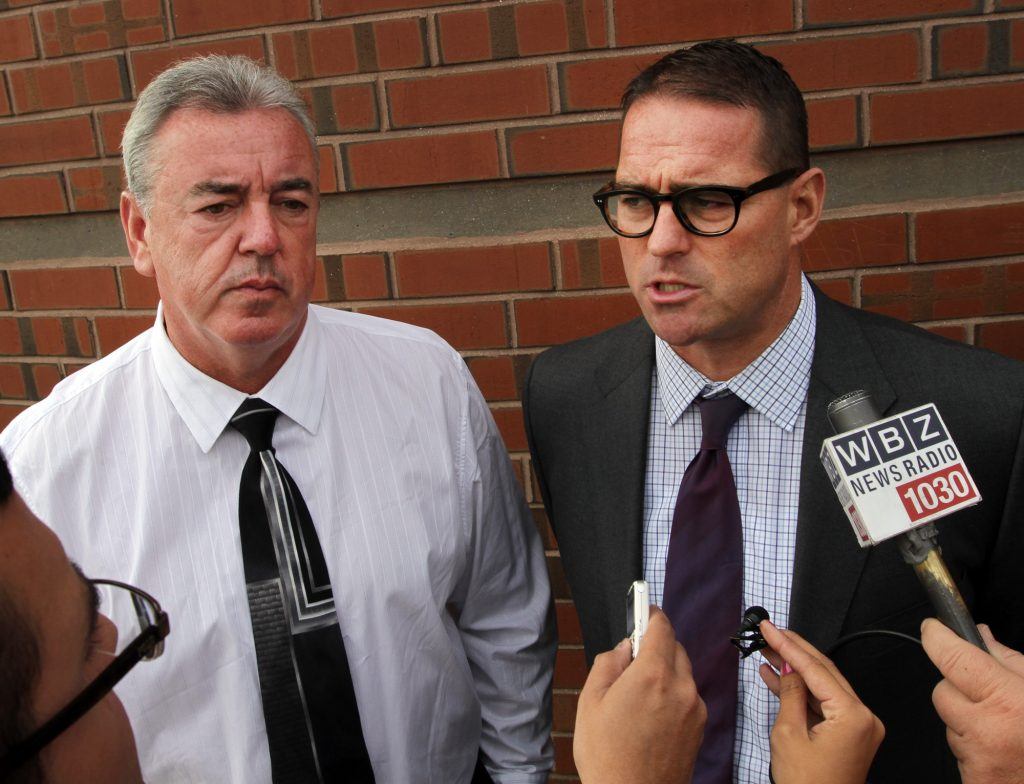Wynn Boston Harbor Land Deal Defendants Acquitted
Posted on: May 2, 2016, 04:45h.
Last updated on: May 2, 2016, 04:55h.
The Wynn Everett land deal fraud case in Massachusetts ended with the acquittal of all three defendants by a federal jury in Boston on Friday.

Charles Lightbody, Anthony Gattineri, and Dustin DeNunzio stood accused of fraudulently profiting from the sale of the contaminated former chemical plant in Everett that is destined to become the $1.6 billion Wynn Boston Harbor, formerly known as the Wynn Everett.
Prosecutors alleged that Gattineri and DeNunzio had attempted to conceal Lightbody’s role as a co-director of their company, FTB Realty, prior to the sale of the land. It was alleged that they did so because they feared Lightbody’s checkered past and alleged Mob connections would scuttle the deal, as Massachusetts law states that no convicted felon may profit from the operation of a casino.
Lightbody has previous convictions for assault with a dangerous weapon and for organizing an identity theft ring.
The three men were arrested on charges of fraud two weeks after the Gaming Commission awarded the license to Wynn, following a protracted bidding war with the Mohegan Sun.
Wynn’s the Winner
Prosecutors attempted to prove that the defendants had falsified documents to make it look as though Lightbody left the company prior to Wynn’s offer to purchase.
But the defense successfully argued that Lightbody had, in fact, transferred his financial interest in the plot several months before a deal was reached. And it wouldn’t have actually mattered if he hadn’t. Lawyers for the defendants convinced the court that the law relating to “convicted felons” had been misinterpreted not only by the prosecution, but also by the defendants themselves.
It seems there is no law that would have prevented Lightbody from benefiting financially from the Wynn deal, a fact that blew the charge that the Massachusetts Gaming Commission and Wynn Resorts were victims of fraud completely out of the water.
Which means the real big winner in this saga is Wynn Resorts, which was able to drop its initial offer of $75 million for the plot to $35 million, once it realized there was an investigation into Lightbody’s interests in the sale.
No Godfather in Lightbody
This investigation initially arose when Lightbody was heard boasting about the good fortune of the casino deal in a recorded phone conversation with Darin Bufalino, an alleged Mafia soldier, during a prison visit by the former to the latter.
But according to the defense, Lightbody’s mob connections had been exaggerated by prosecutors.
“I hate to tell you, but Charlie Lightbody is not Marlon Brando,” his lawyer, Charles Rankin, told the court. “He didn’t strong-arm his way into FBT. He borrowed money from a bank.”
The FTB affair was also used by the City of Boston in its attempt to sue the gaming commission for violating the Gaming Act in awarding the license to Wynn over the Mohegan Sun.
Had the latter bid been successful, the city would have qualified for payments of $18 million as part of a “host community” compensation agreement. That case was thrown out by a judge in December, who branded it “spurious.”
No comments yet